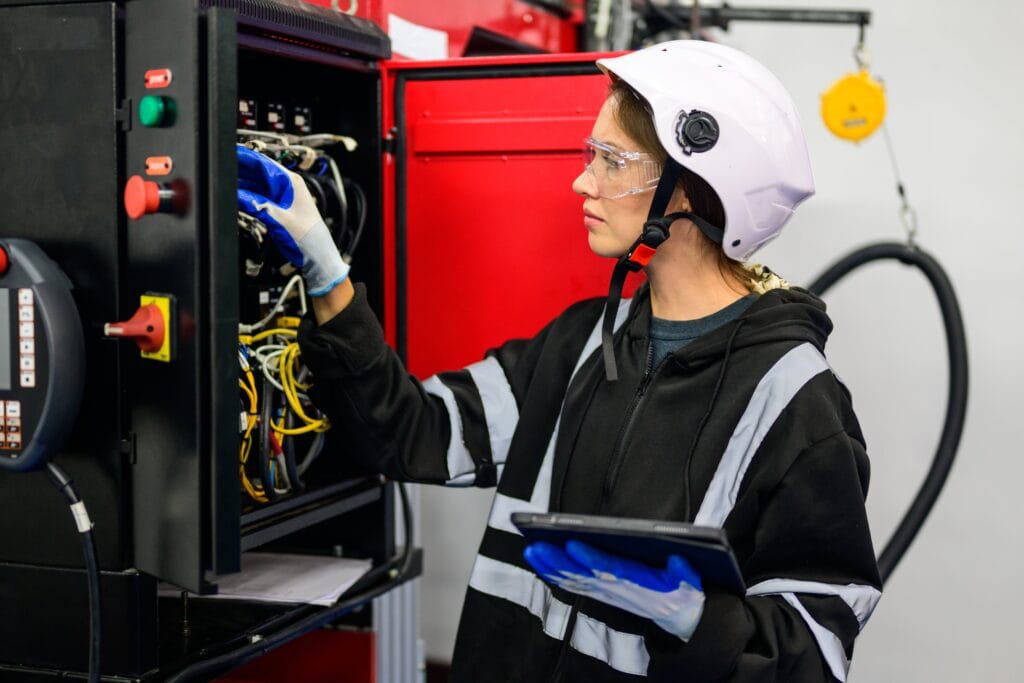In the dynamic landscape of academia, technicians play a crucial role in supporting research, education, and innovation. Despite their indispensable contributions, technicians often face challenges related to recognition and career advancement. This blog post explores the importance of advocating for technician recognition in academia and highlights strategies to enhance their professional development and visibility. By understanding the role of technicians, addressing their challenges, and utilizing resources effectively, the academic community can ensure that technicians receive the acknowledgment and opportunities they deserve.

Understanding the Role of Technicians in Academia
Technicians in academia are essential pillars of research and education. They manage and maintain advanced equipment while ensuring safety protocols are followed. Their support allows research projects to run smoothly, contributing to scientific discoveries and educational progress. Technicians bring specialized knowledge that drives innovation and solves problems. Their hands-on involvement in experiments makes them valuable to faculty and students alike. They bridge the gap between theory and practice, enabling research and academic goals to be achieved.
Despite their importance, technicians often work behind the scenes, making their contributions less visible. They offer more than just operational support, actively collaborating to ensure the infrastructure of research and education is sound. This allows the academic community to push boundaries and achieve new milestones.
Challenges Faced by Technicians
Despite their crucial role, technicians face many challenges. Budget constraints often limit resources for professional development and equipment maintenance. This puts pressure on them to perform without adequate support. Career progression is another issue. Many technicians have few opportunities to advance, leading to feelings of stagnation.
Recognition is also limited. Their work is often overlooked, despite its importance in supporting research. This lack of acknowledgment affects morale and job satisfaction. The evolving demands of academia further complicate things. Technicians must constantly update their skills to keep up with new technologies. These combined challenges make it hard for technicians to thrive.
Initiatives for Technician Support and Development
Several initiatives have emerged to support technicians. The Technician Commitment aims to give them visibility, recognition, and career development. This initiative encourages institutions to create environments where technicians can thrive.
Organizations like UKITSS provide resources and networking opportunities. They offer workshops and training sessions to help technicians improve their skills. By attending these programs, technicians can stay ahead in a rapidly changing environment.
Another important focus is creating career pathways for technicians. This involves clear criteria for advancement, recognizing their unique contributions. Providing career development opportunities helps technicians map out their professional goals.
Appreciation and acknowledgment within institutions are also important. Recognizing technicians’ roles boosts morale and job satisfaction. Institutions can foster a culture of appreciation by engaging faculty and administrators in these efforts.
Taking Charge of Your Career Development
Managing career development is key for technicians in academia. Embrace opportunities for continuous learning. Attend workshops, enroll in courses, and stay updated on the latest technologies. Seek mentorship from experienced colleagues to help guide your career. Set clear goals and identify the steps needed to achieve them.
Engage with professional organizations and attend conferences to network and exchange ideas. Contribute to academic publications or present your work to showcase your expertise. These activities increase your visibility and help open doors to new opportunities.
Increasing Visibility and Recognition
To increase visibility, technicians should actively communicate their achievements. Share successful projects and innovations with colleagues and supervisors. Collaborating with other departments can also showcase your value to the academic community.
Building professional relationships with faculty and administrators is crucial. Regular dialogues and insights into your work help others understand your role. Recognize and celebrate collective achievements to foster a culture of respect.
Social media platforms like LinkedIn are excellent tools for sharing professional milestones. Join industry groups and discussions to build connections and increase visibility. Engaging with online communities can further amplify your presence and open doors to collaboration.
Leveraging Online Platforms for Career Advancement
Online platforms are powerful tools for technicians. Engaging with professional networks offers opportunities to share expertise and access new job prospects. LinkedIn allows technicians to showcase their skills and achievements. Joining industry-specific groups can also provide insights and foster collaborations.
Social media platforms help spread your work to a wider audience, enhancing your professional presence. Many platforms also offer webinars, workshops, and courses, allowing technicians to upgrade their skills. Engaging with these communities can help technicians navigate their careers more effectively.
How Academworks.com Can Support Technicians
Academworks.com supports technicians in academia. By signing up, technicians can access tools to enhance their careers. The Resume Assistant helps create professional CVs quickly and easily. Technicians can also stay updated on academic news and trends.
Academworks connects technicians with job opportunities and collaborators worldwide. It helps technicians advertise their skills and search for relevant positions. This boosts visibility and opens up new avenues for career progression.
Sign up today on Academworks.com and take control of your career, ensuring you stay competitive in the evolving academic landscape.


